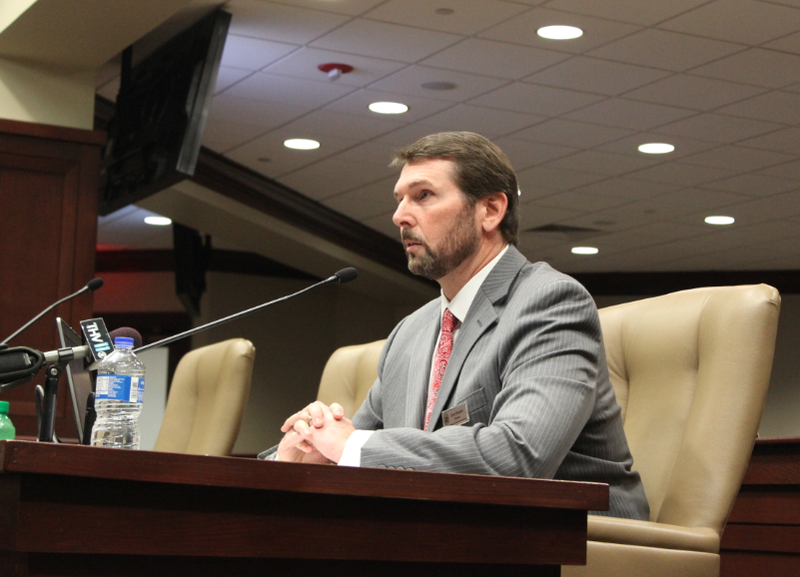The director of the Arkansas Highway and Transportation Department says more resources are needed as the agency looks to improve after a winter storm this month turned Interstates 40 and 55 into parking lots, stranding thousands of drivers.
Scott Bennett is speaking Tuesday to a joint meeting of House and Senate transportation committees about the March 2 storm, which dropped a mix of rain, freezing rain, snow and sleet on most of the state.
"I don't want anybody pointing fingers at the 1,400 workers we had out working 24 hours a day on these events," he said, calling some of the circumstances "extenuating" surrounding the latest storm. "We really are mindful of expectations. We know the expectations are high and we want to do everything we can to meet those expectations. In the end, a lot of it does have to do with the ability to buy new equipment and hire new people."
Bennett said his agency has already spent more than $18 million this year on snow and ice removal, far eclipsing the nearly $5 million spent all of last winter, and needs more resources to implement improvements it is recommending after meeting with Missouri highway officials.
He estimated those improvements in full would cost in the range of $50 million to $60 million, though he conceded $22 million "make a huge difference."
"It's not likely we're going to give you $50 million," Sen. Linda Chesterfield told Bennett after asking for an estimate on the cost.
The highway department came under fire from a number of sources, including Gov. Mike Beebe, who questioned why Missouri and Tennessee seemed to have easier times clearing their roadways — including those near the Arkansas border.
Bennett said parts of Arkansas received more wintry weather than parts of those states and noted that each receives more funding and has more equipment for clearing highways.
Missouri has 570 heavy-duty "belly" plows, which have plows underneath the body of a dump truck and are used to clear snow and break up ice. Arkansas, meanwhile, has only six belly plows and about 700 vehicles total, including some that can't have a plow attached, Bennett said.
Missouri also hires seasonal employees at winter, contracts with a private weather service company and buys a greater amount of salt, which they pretreat with beet juice.
Bennett said the highway department is looking at making changes based on Missouri's approach, but the plan is still under development and the "cost of full implementation" isn't clear. Estimates show the changes would require 250 new plows, about 200 new spreaders, an unknown number of new trucks to which to attach them and 350 more workers.
"These are some of the issues we're working through right now to see if we can get a handle on the cost before we finalize that plan," he said.
Bennett said his agency needs to improve its communication, get better at moving equipment around the state and become more aggressive in closing interstates as it becomes necessary.
"But we have to be mindful of where we're going to put everybody," he said of the highway shutdowns.
He said the department in the near-term wants to buy a dozen of the belly plows, add new salt storage facilities, pursue equipment upgrades and create a special snow and ice budget. Currently, the funds come out of the agency's maintenance budget.
Bennett noted that the early March storm presented a number of unique challenges. Among them, the forecast shifted significantly in the days before and the statewide impacts made it difficult to move crews from one area to another since they were needed everywhere.
Crews did pretreat roads, Bennett told lawmakers, but the system started as rain, which is problematic.
"When the rain comes in first, it washes away a lot of that pretreatment," he said. "And those things happen pretty quickly."
Unusually heavy amounts of sleet that outpaced even the forecast also made the situation difficult, Bennett said, as did the fact that three construction projects were ongoing in the affected areas of I-55 and I-40.
The response was hampered further as trucks wrecked, blocking the highway, or, in one case, when one broke down unrelated to the weather in a single-lane construction zone.
Sen. Bill Sample, chair of the Senate Committee on Transportation, Technology and Legislative Affairs, opened the proceeding calling the event "a perfect storm of record sleet and ice."
"We're here not to lay blame but to try to get facts and see if there's some solutions to this problem," he said.
